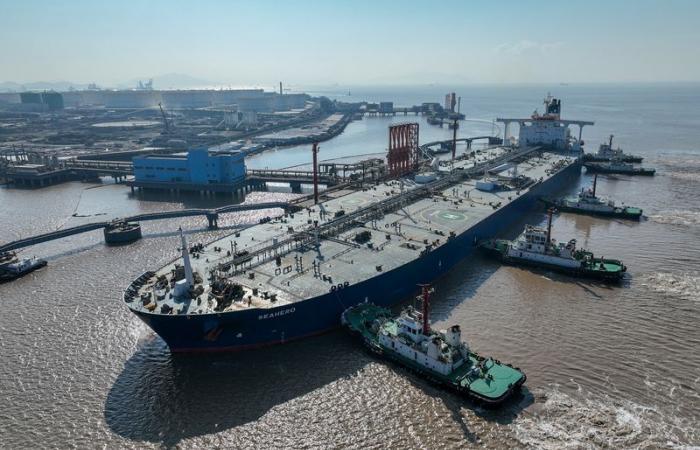Oil prices rose slightly on Monday, supported by positive industrial activity in China, the world's second largest oil consumer, and as Israel resumed attacks on Lebanon despite a ceasefire agreement. fire, thus reigniting tensions in the Middle East.
Brent rose 8 cents, or 0.1 percent, to $71.92 a barrel by 0107 GMT, while U.S. West Texas Intermediate was at $68.09 a barrel, up 9 cents, or 0. 1%.
Prices rose after an official survey showed Chinese factory activity rose modestly for a second straight month in November, suggesting a stimulus blitz is finally creeping in just as Donald Trump steps up his trade threats.
“The China data helps, but I think it's also driven by concerns about the ceasefire between Israel and Lebanon,” said Tony Sycamore, IG's Sydney-based market analyst.
A truce between Israel and Lebanon came into effect on Wednesday, but both sides accused each other of violating the ceasefire.
The Lebanese Health Ministry said in a statement that several people were injured in two Israeli strikes in southern Lebanon. Airstrikes have also intensified in Syria as President Bashar al-Assad vowed to crush insurgents who have overrun the city of Aleppo.
Last week, both benchmarks posted weekly declines of more than 3%, as concerns eased over supply risks linked to the conflict between Israel and Hezbollah and forecasts of an oversupply in 2025, even as OPEC+ is expected to extend production cuts.
The Organization of the Petroleum Exporting Countries and their allies, known as OPEC+, has postponed its meeting until December 5 and is discussing postponing the oil production increase planned for January, sources said. 'OPEC+ to Reuters last week. This week's meeting will decide on the policy to follow for the first months of 2025.
“Extending production cuts would give OPEC+ more time to assess the impact of Trump's policy announcements on tariffs and energy, as well as to see what China's response will be” , said Mr. Sycamore.
Brent is expected to average $74.53 per barrel in 2025, with China's economic weakness clouding the demand picture and plentiful global supply outweighing support from the expected postponement of a planned increase in OPEC+ production, according to a monthly Reuters oil price survey on Friday.
This is the seventh consecutive downward revision to the 2025 consensus for the global benchmark, which has averaged $80 per barrel so far in 2024.






